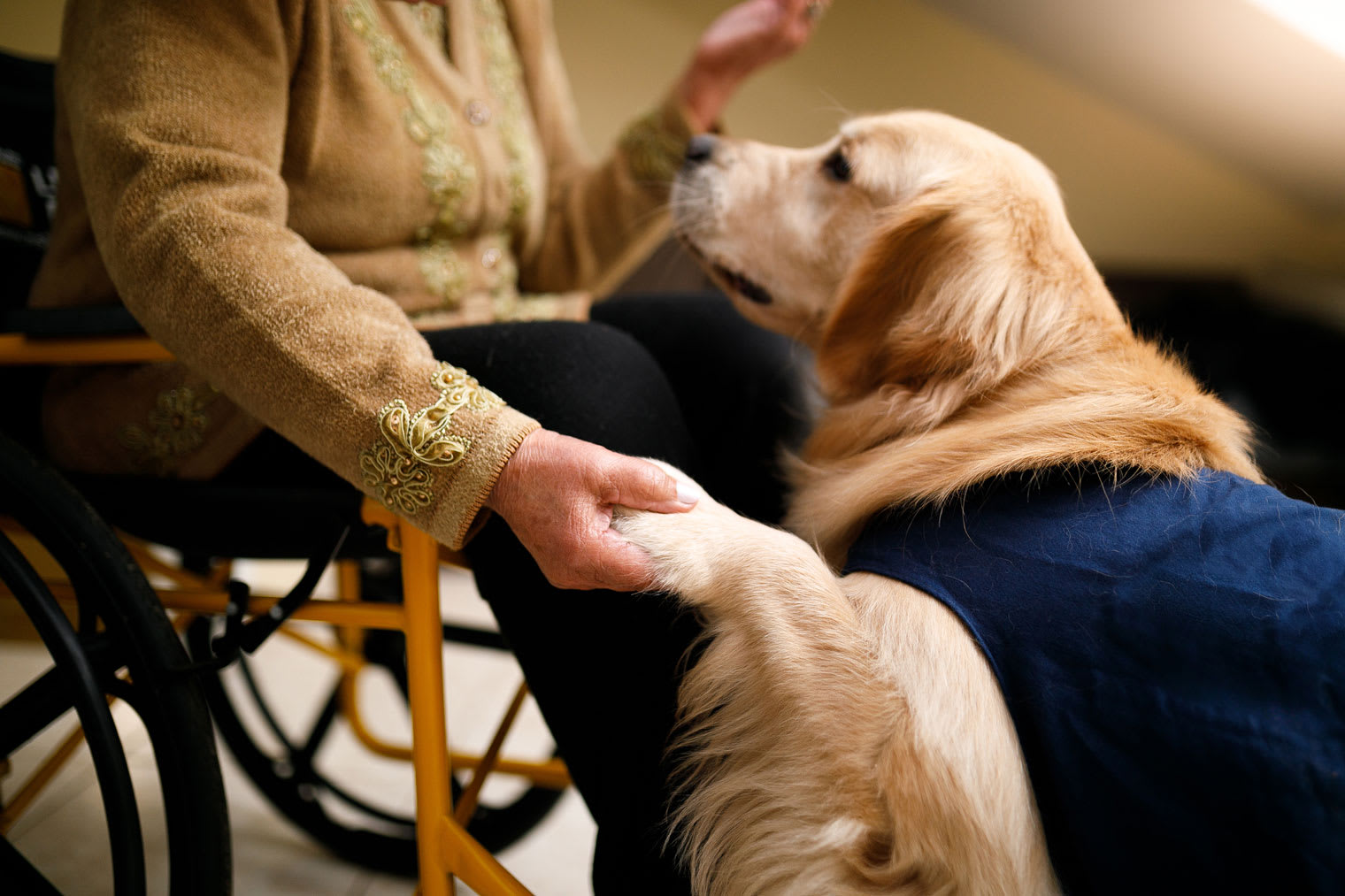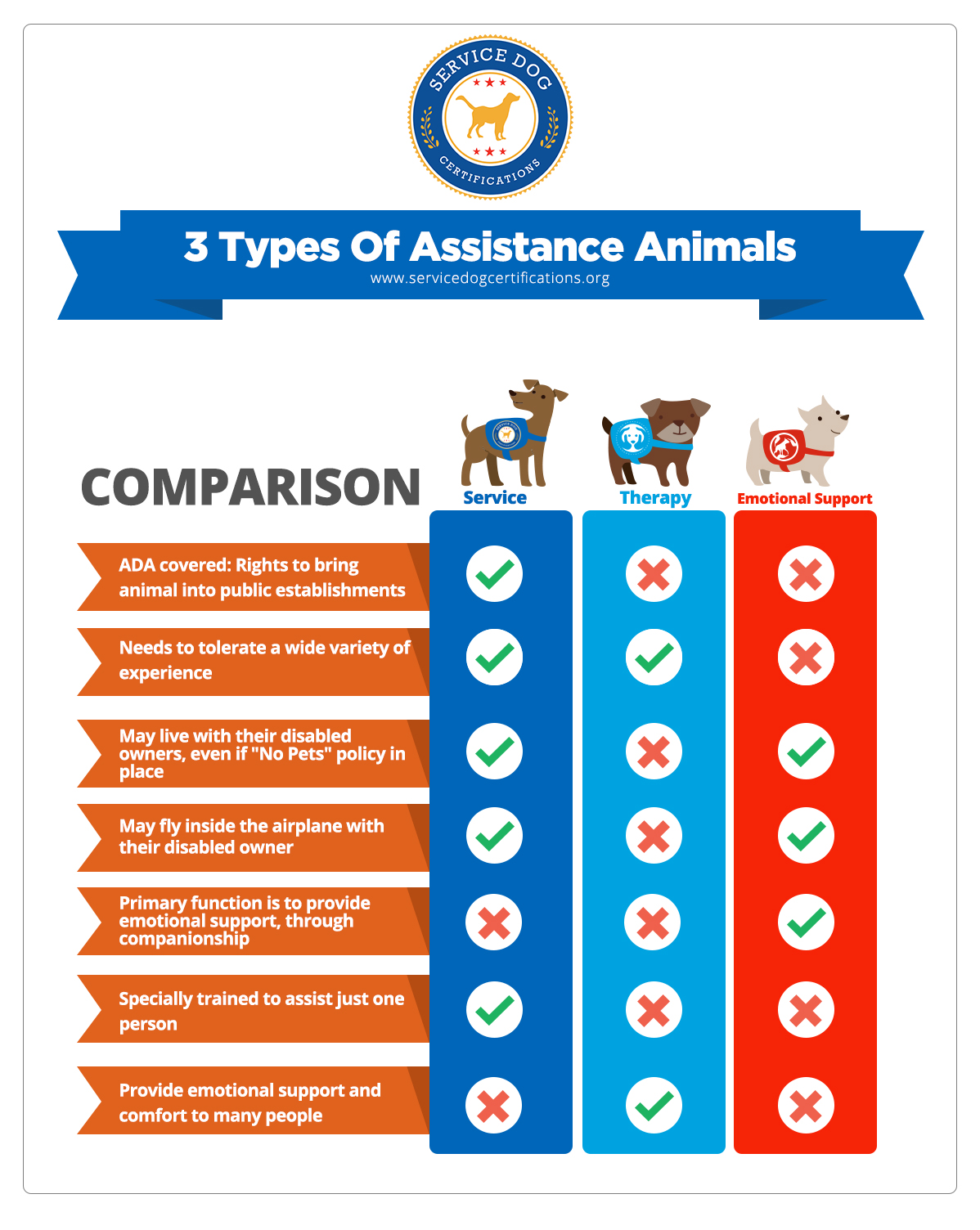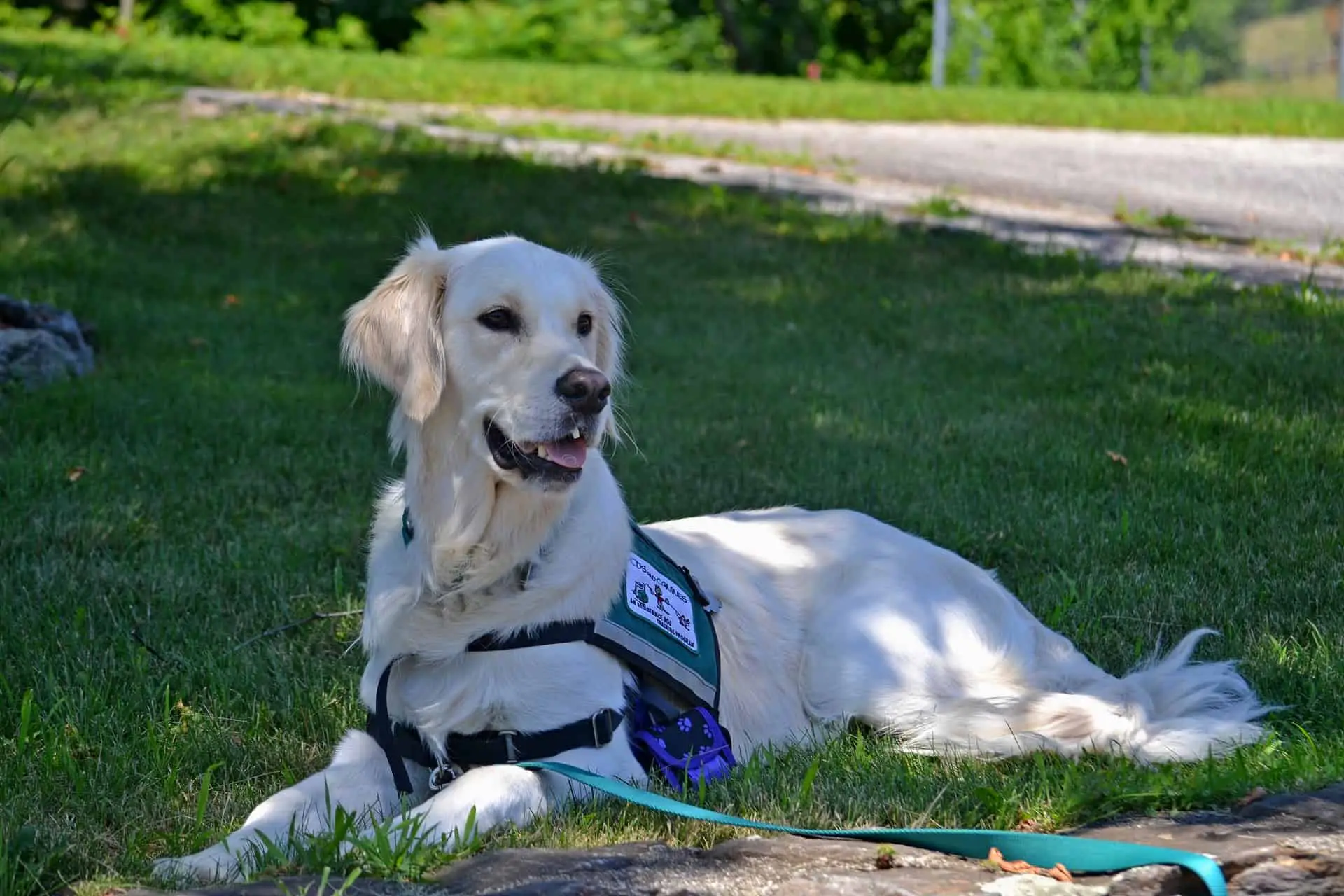Service Animals And Emotional Support Animals In Victim Services

These differences are explained in the separate sections of this documents.
Service animals and emotional support animals in victim services. Transportation and services that others take for granted. This guide provides an overview of how major Federal civil rights laws govern the rights of. Examples include a dog that guides an individual who is blind alerts a deaf or hard of hearing person when a doorbell rings or picks up and hands a pen to a person a with a mobility impairment.
Find out the laws in the United States that apply to these. There are differences in the processes required and in the accommodations provided to individuals with identified disabilities supported by Service Animals and Emotional Support Animals. Service animals and emotional support animals might have access to buildings and vehicles where animals are normally excluded.
A service animal means any dog that is individually trained to do work or perform tasks for the benefit of a person with a disability including a physical sensory or psychiatric disability. How They Are Different and What You Should Know By. Some ESAs are.
Emotional support animals are not included. Et the Office for Victims of Crime Training and Technical Assistance Center will present an online Expert QA discussion with Marcie Davis and her service dog Lovey Davis on Service Animals and Emotional Support Animals in Victim Services. During this session practical information will be provided to direct service providers and other programs open to the public about service and support animals.
An emotional support animal is not a service animal and not afforded access to all public places. Find out the laws in the United States that apply to these animals including the Fair Housing Act and learn about New Mexicos Model Guidelines for Service Animals and Emotional Support Animals in Domestic Violence Programs and Shelters which provides policy suggestions and other tips for working with clients who have emotional support animals and. Introduction Individuals with disabilities may use service animals and emotional support animals for a variety of reasons.
An ESA may be requested by a student with a psychiatric disability as an accommodation in University housing. Service Emotional Support and Therapy Animals. Both service animals and emoional support animals are covered by fair housing lawsAnimals that help alleviate symptoms of a disability can be considered emotional support animals or service animals.



















